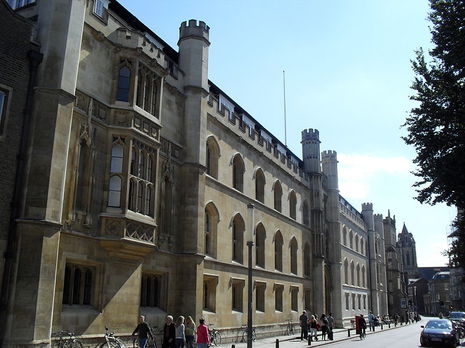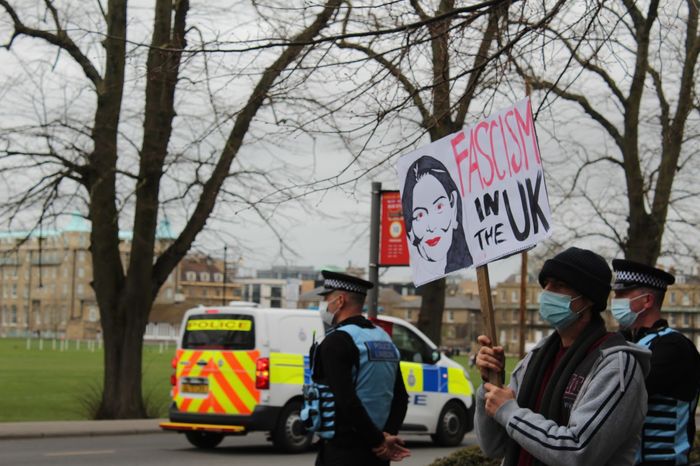Cambridge city centre under 48-hour dispersal order
The order allows Cambridge police officers to ask people to disperse if they engage in behaviour that ‘has caused, or is likely to cause, harassment, alarm or distress to members of the public’

Cambridgeshire police yesterday (13/04) put in place a 48 hour dispersal order allowing officers to remove individuals from the city centre for anti-social behaviour, in a bid to tackle “aggressive begging and street drinking, thefts of bikes and violence.”
The order came into effect at 9am on Tuesday, and will be in place until 9am on Thursday (15/04).
It covers the area within Chesterton Road, Elizabeth Way, Sturton Street, Mill Road, Gonville Place, Trumpington Street and Trinity Street.
Cambridge City Inspector Ed McNeil said: “We’ve seen an increase in anti-social behaviour and reports of violence in these areas. With footfall to the city increasing to almost pre-pandemic levels, we want to reduce the risk of crime and disorder and allow people visiting the city to go about their business without being harassed, alarmed or distressed.”
A Facebook post by Cambridgeshire Constabulary announcing the policy garnered hundreds of negative reactions within hours.
The post was accompanied by an image of police officers talking to a homeless person in Cambridge. “That’s called being homeless. It’s not antisocial or aggressive”, one Facebook user wrote.
This is the latest dispersal order introduced in Cambridge under Section 34 of the Anti-Social Behaviour, Crime and Policing Act 2014. A similar order was temporarily introduced in June 2020 for the Mill Road area.
Dispersal Orders are not limited to instances of begging and street crime, and were also used last summer to disperse members of the public swimming in Cherry Hinton lakes.
According to Cambridgeshire Constabulary’s website, under Section 34 officers can require individuals to leave an area “if they have reasonable grounds to suspect that their behaviour has caused, or is likely to cause, harassment, alarm or distress to members of the public”, adding “[f]ailure to comply with the order can result in arrest.”
The Covid-19 pandemic has led to an increase in the number of homeless or vulnerable individuals seeking support in Cambridge. Charities such as Wintercomfort have reported a sharp increase in the number of women accessing support services since the first lockdown began in March 2020.
McNeil, on behalf of the Cambridgeshire Constabulary, further told Varsity that the dispersal order arose from “direct calls from concerned members of the public and businesses in the city who have experienced first-hand aggressive begging and violence.”
He continued: “Everyone has a right to feel safe where they live, work or visit and for us that sometimes means we need to take enforcement [...] This is a complex issue and one we’re addressing alongside the local authority, support services and charities.”
McNeil added that all members of the public spoken to and dispersed from areas affected by the order had accommodation and “are being cared for by the local authority.”
This article has been updated to include comment from a member of the Cambridgeshire Constabulary.
 News / Cambridge academics stand out in King’s 2026 Honours List2 January 2026
News / Cambridge academics stand out in King’s 2026 Honours List2 January 2026 Interviews / You don’t need to peak at Cambridge, says Robin Harding31 December 2025
Interviews / You don’t need to peak at Cambridge, says Robin Harding31 December 2025 Comment / What happened to men at Cambridge?31 December 2025
Comment / What happened to men at Cambridge?31 December 2025 Features / “It’s a momentary expression of rage”: reforming democracy from Cambridge4 January 2026
Features / “It’s a momentary expression of rage”: reforming democracy from Cambridge4 January 2026 News / Varsity’s biggest stories of 202531 December 2025
News / Varsity’s biggest stories of 202531 December 2025










